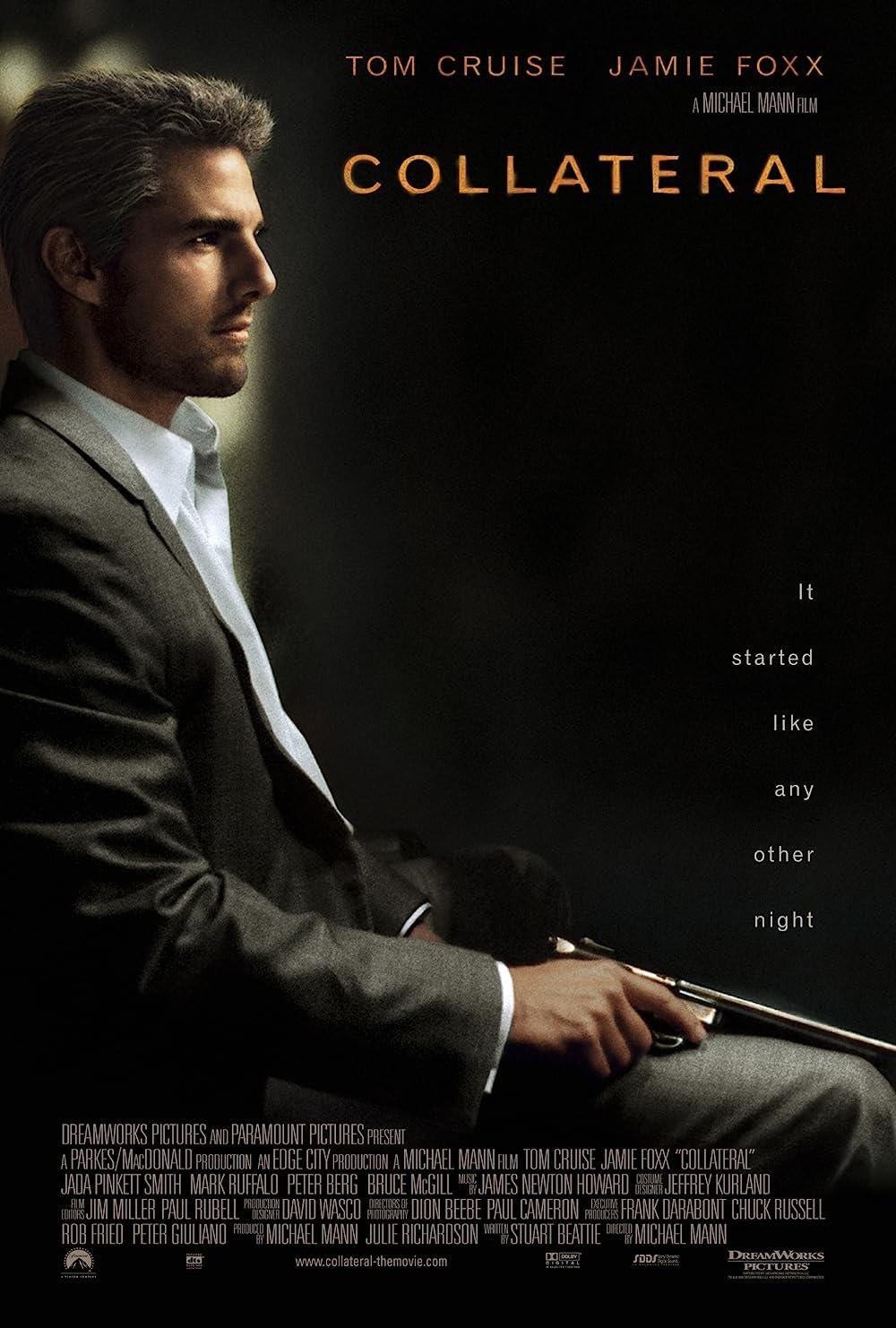Turning Tom Cruise into a villain isn’t exactly a stretch—his soulless shark eyes hide an abyss behind the fair facade. But in Michael Mann’s Collateral, the mask is stripped away entirely for a chilling, revelatory portrayal of a cold-blooded hitman. Cruise’s Vincent is clinical, charming, and terrifying, and the genius of the film lies not just in his performance, but in how he plays off Jamie Foxx.
Foxx, as the soft-spoken and cautious Max, brings quiet intelligence and reluctant courage to the role. He’s outmatched, outgunned, but not outwitted, and it’s this unlikely dynamic—two men locked in a car across a single LA night—that gives Collateral its electricity. The chemistry between Cruise and Foxx crackles with tension and strange empathy, elevating what could have been a standard thriller into something leaner, meaner, and more thoughtful.
And then there’s Los Angeles. Mann captures the city with a nocturnal beauty that makes it feel like a living, breathing entity—haunting, indifferent, and sprawling. LA isn’t just a backdrop; it’s a silent accomplice. The alien glow of streetlights, the cold hum of the city, the lonely geometry of empty roads—this is noir updated for the digital age.
If there’s one complaint, it’s that the film ends a beat too abruptly. After such a tightly wound build-up, the final confrontation feels like a curtain drop without a proper coda. We’re left wondering what became of Jada Pinkett Smith’s character and her court case, whether Mark Ruffalo’s dogged detective survived, and if Max ever found the resolve to turn his limousine dream into something real. For a film that so clearly cares about its characters, the ending feels oddly indifferent to their aftermath.
Still, Collateral remains a sleek, existential thriller—tense, stylish, and deeply human beneath its cool surface.
Rating: A-



